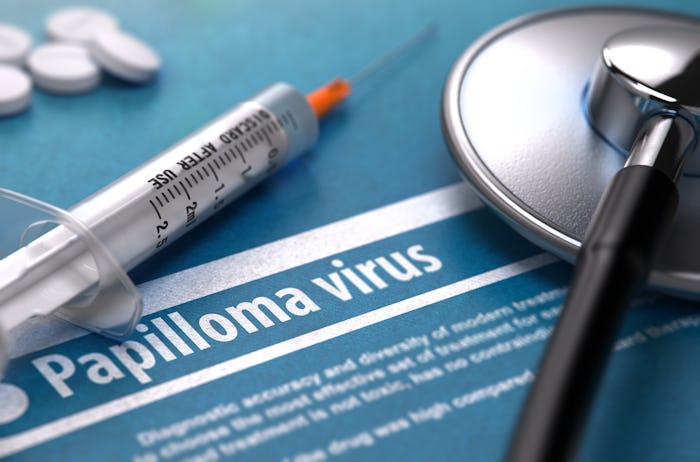Life

Will You Always Have HPV? The Answer Isn't Totally Clear
Finding out you have the human papilloma virus (HPV) can be overwhelming. So many questions arise. Can it be treated? What are the symptoms? Will I always have HPV? Even more overwhelming is the fact that there are more than 100 types of HPV, according to the HPV Test. With so many different strains of the virus, the Centers for Disease Control and Prevention (CDC) is still learning about HPV, and how to prevent, treat, and eliminate the virus.
The first question you ask when you find out you have a sexually transmitted infection (STI) is, can it be treated? The answer is twofold. Although the virus itself cannot be treated, the CDC notes that there are treatments for HPV-related health problems that the virus can cause. From genital warts to HPV-related cancers, the earlier the HPV and its associated risks are diagnosed, the easier they are to treat. However, it's important to remember that you can test HPV-positive without any symptoms.
The second question you ask is, will my HPV ever go away?
Unfortunately, because medical science is still discovering so much about HPV, it is not known for certain whether the the infection ever truly leaves the body, or if it merely becomes dormant. Although there is no cure for HPV, Web MD notes that the infection often clears on its own. The CDC estimates that more than 90 percent of HPV infections are cleared by the body within two years. However, whether or not that means you're completely HPV-free is still unknown.
So what can you do in the meantime?
Practice Safe Sex

This should be a no-brainer, but practicing safe sex especially when you've been diagnosed with HPV, is important. Be smart. Use a condom, especially with new partners. According to Planned Parenthood, HPV is spread by intimate contact, skin-to-skin, usually during vaginal, anal, or oral sex. So wearing a condom, and practicing safe sex on all counts, can keep you from spreading the infection to new partners, and increasing your risk of a recurring infection. New partners can also introduce a new HPV infection with a different type of virus. Long story short? Wear a condom.
Be Honest With Your Partners
Being honest with all of your sexual partners about any STI you might have is important, even if your HPV has been diagnosed as a low-grade risk, or even cleared. Not sure where to start? Join an HPV support group. Living and dating with HPV is more common than you might think. Opening up a dialogue with your current partner, and any new partner, is important not only for your sexual health, but your mental health as well.
Get Tested Regularly
Because the world of HPV is still being discovered every day, it's important to get tested regularly. The CDC recommends that women with normal pap smears and negative HPV results get re-tested at least every three years.
HPV can take an emotional toll on you, as well as physically. That means it's important to not only take your time in learning about the virus, but take your time in figuring out how it's going to affect your emotions, and your daily life. HPV can be scary, but it doesn't have to be.